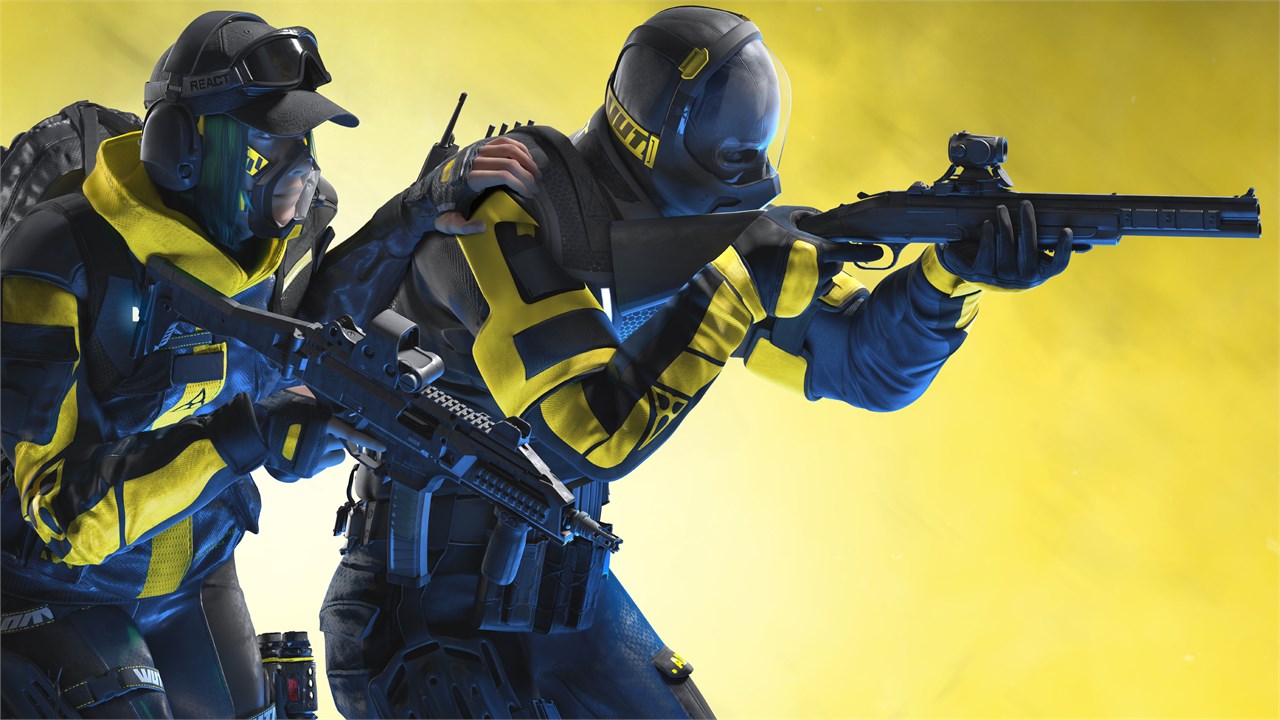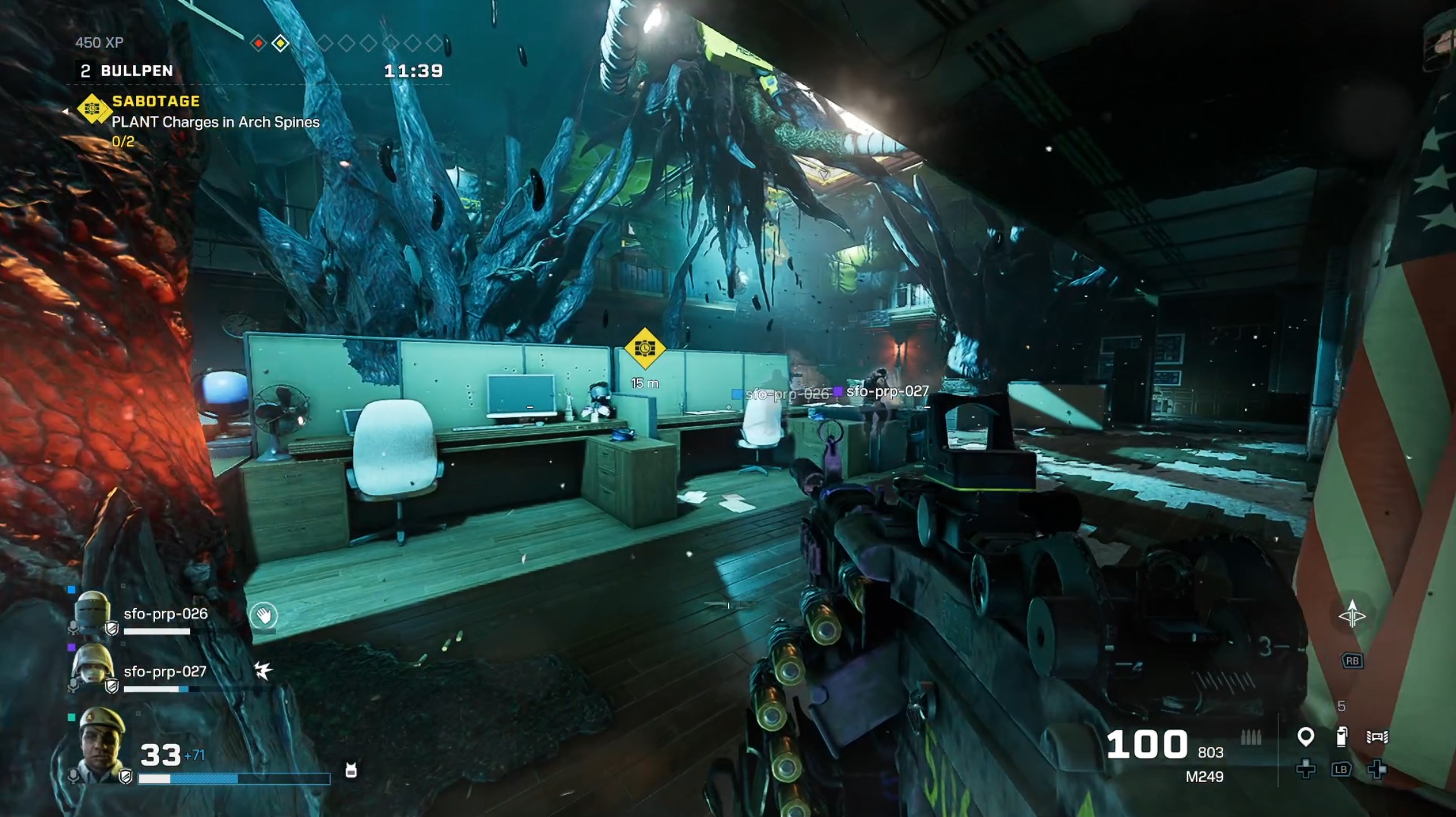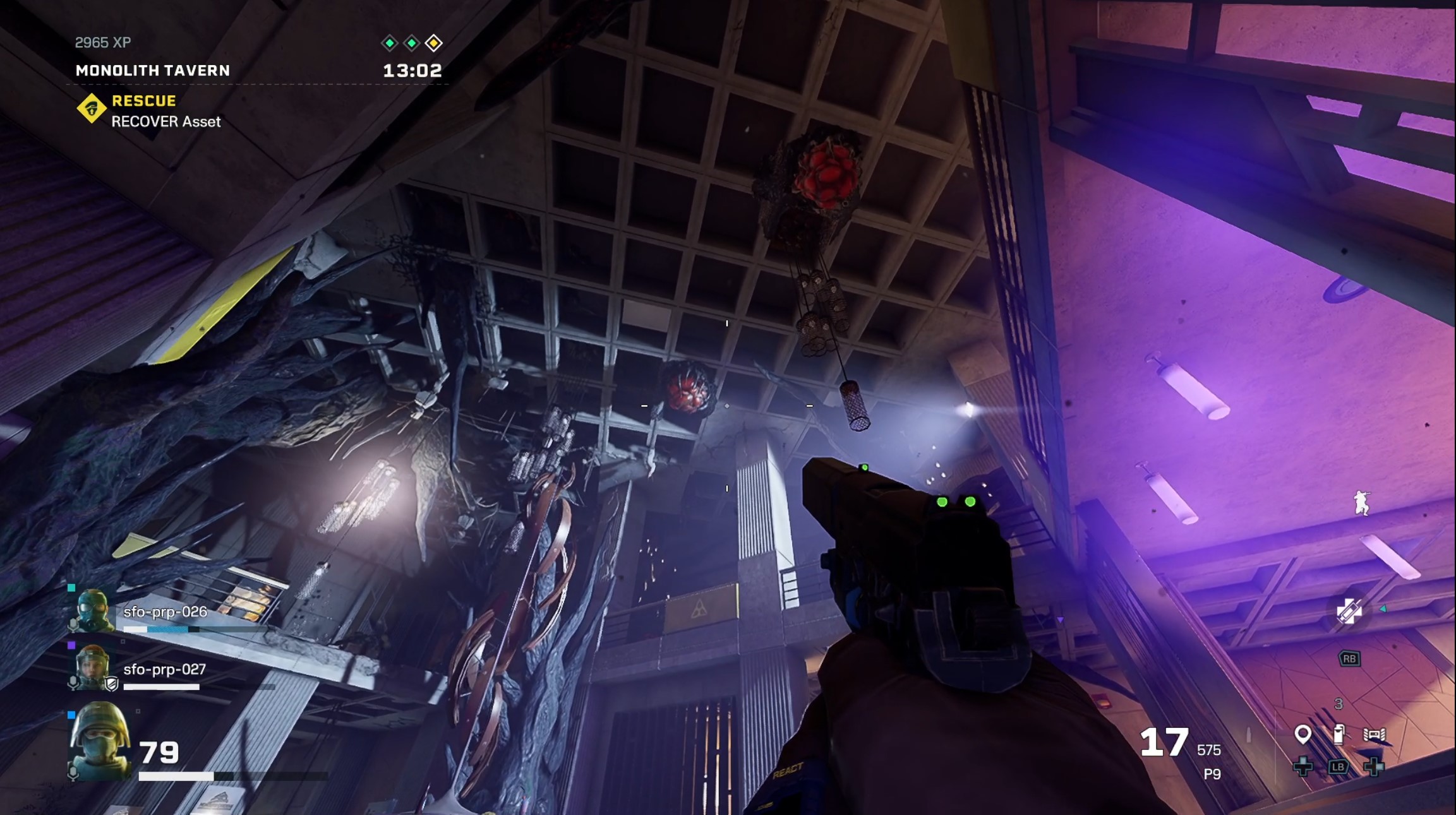Rainbow Six Extraction is a pleasant surprise, but is that enough?
Another challenger strives for the co-op FPS throne.

In my second full mission of Rainbow Six Extraction, I lost my operator, Rook, to a hard-hitting, beefy goo alien. Another squadmate soon followed, and we were forced to watch our last teammate engage in an agonizing cat-and-mouse game with the rude dude before ultimately succumbing. Despite our best efforts, we were unable to stage a successful rescue operation of our captured heroes.
I had the chance to partake in a four-hour demo of Ubisoft's upcoming Rainbow Six Siege co-op spinoff ahead of its release later this month. I came away from my playtime surprised and impressed, but I'm not sure how big of a splash it will make in a genre already undergoing a bit of a renaissance.
Extraction is set in an alternate timeline in the Rainbow Six Siege-verse where the world is infested by alien monsters called Arachaeans. Call these sticky tar beasts what you want, I keep calling them "goop guys" in my head, but these are your classic melee-focused zombie cannon fodder with elite variants you've come to expect from games like Left 4 Dead, Back 4 Blood, or Vermintide. Unlike those four-player affairs, Extraction squads are trios made up of existing operators from Siege.
The experience began with a tutorial level set on an infested Liberty Island. I went in as Doc, whose always-in-demand healer abilities make him a solid beginner operator. Similar to Siege, each operator has a customizable loadout with a curated selection of weapons. I went for Doc's default shotgun and opted for a suppressed handgun over the classically cool revolver. It's a good thing I reserved that quiet option, because Extraction demands a surprising degree of stealthy play. With a slow default move speed and enemies that could overwhelm our squad in small numbers, Extraction has more in common with co-op survival-horror shooter GTFO than the run-and-gunning survivors of Left 4 Dead.
Enemies are not immediately alerted to your location, and many of the game's objectives even require you to be undetected in order to continue. Instead of sprinting around with shotguns and assault rifles, I found myself methodically clearing rooms and headshotting Arachaeans with suppressed pistols. Going in loud carries the risk of overwhelming your squad or spending valuable resources too early in a mission.
Extraction's operators start each mission with limited health pools, and even the most schlubby, goomba-esque Aracheans hit hard. I was assured by Ubisoft reps that I was quite good at the game and had picked it up fast, but my dying halfway through the tutorial implies otherwise. That game-over, as well as most of my squad's wipes and near-wipes on later missions, all came from alerting our enemies and initiating pitched combat when we weren't prepared. Extraction's basic rhythm is like if you stretched Left 4 Dead's witch encounters into a full game—entire arenas of cautious exploration punctuated by explosions of loud violence. That's not what I expected, but I found this gameplay loop pretty refreshing.
Missions are separated into three sub-areas with their own objectives punctuated by L4D-style safe rooms called airlocks. Typical objectives include eliminating enemies or enemy-spawn points from stealth, hostage rescue, taking down elite enemies, or defending a position for a set amount of time. In addition to airlocks leading to the next part of the mission, each area has an extraction point where you can place downed squadmates for rescue or even leave the mission early, cutting your losses and forgoing the potential rewards of the rest of the next objective. My squad took this option when we felt we had taken too much damage or suffered a KO too early into a mission.
The biggest gaming news, reviews and hardware deals
Keep up to date with the most important stories and the best deals, as picked by the PC Gamer team.

You'll want to be precious with your operators as damage is extremely persistent both in and out of missions. Health restoring items and abilities only add temporary hit points that slowly tick away over time. Once you've suffered some damage to your main health bar, it won't go away until after the operation is complete.
Even then, your operator will have to take missions off to fully recuperate, with the number of operations increasing based on how much damage they suffered. I liked both of these limitations. I was reminded of tactics games like XCOM or Darkest Dungeon where you manage a pool of heroes who face persistent consequences for any threat to their fragile constitutions. I also think it helps balance Extraction's large selection of operators and forces you not to play favorites for too long. No matter how good one single character is, you won't be able to rely on them for every mission.
If an operator is fully downed while on a mission and not placed in an extraction zone, they will have to be "rescued" before being made available to use again. You'll automatically receive an MIA rescue objective in one of the mission areas the next time you launch an operation in the same city. MIA rescue requires you to pull your operator out of an Archaean cocoon and take them to an extraction point. I like the added consequence to getting downed on a mission, but I could do without the little quick time event you have to go through when you pull one of your guys out of the goop—think the arm-wrestling minigame from the Witcher 2 with a less friendly UI and you're basically there.

Rainbow Six Siege's signature environmental destruction is sort of present in Extraction, but it's not as heavily emphasized here. Other than one of my squadmates getting creative with the Sledge's titular hammer, blasting through walls to get past bottlenecks and big groups of enemies with a modicum of stress, I didn't notice many opportunities to use Siege's crumbly wall tech to our advantage. However, I could see virtuosity with environmental destruction being something that comes with experience, a dividing line between good and great players.
My best surprise of the demo was the sole boss fight my squad encountered, a zombified version of Sledge in possession of the classic videogame boss "big buy" move set: slow, telegraphed attacks and punishing gap-closers. After we cleared two-thirds of his health bar, Evil Sledge mixed things up by raising an impenetrable shield negating all damage from the front. We then had to coordinate, having one squadmate distract while the other two dealt damage from behind. The Protean was easily the highlight of the demo, offering a challenging, mechanically complex boss fight. The developers I spoke to indicated that there would be 3-4 potential Proteans based on different operators at launch, and that they intend to release more as time goes on.
The final mode we tackled was "Maelstrom Protocol"—what the developers described as an "endgame activity" for Rainbow Six Extraction. Maelstrom is a bit of a roguelite mode: a weekly gauntlet of nine continuous objectives with increasingly difficult modifiers. My squad barely made it out of our third zone, which had a low-visibility haze that we hadn't encountered in our normal missions. We immediately beefed it against some elite enemies in the next area, and summarily extracted to fight another day.
Rainbow Six Extraction has a lot going for it, and its gameplay loop certainly manages to set it apart from the most popular co-op shooters around, but there are so many quality co-op zombie (and zombie-adjacent) shooters to choose from like Back 4 Blood, GTFO, or the upcoming Warhammer 40k: Darktide. We'll find out with its launch on January 20th if Rainbow Six Extraction is able to carve out a niche in this increasingly vibrant subgenre.
Ted has been thinking about PC games and bothering anyone who would listen with his thoughts on them ever since he booted up his sister's copy of Neverwinter Nights on the family computer. He is obsessed with all things CRPG and CRPG-adjacent, but has also covered esports, modding, and rare game collecting. When he's not playing or writing about games, you can find Ted lifting weights on his back porch.

